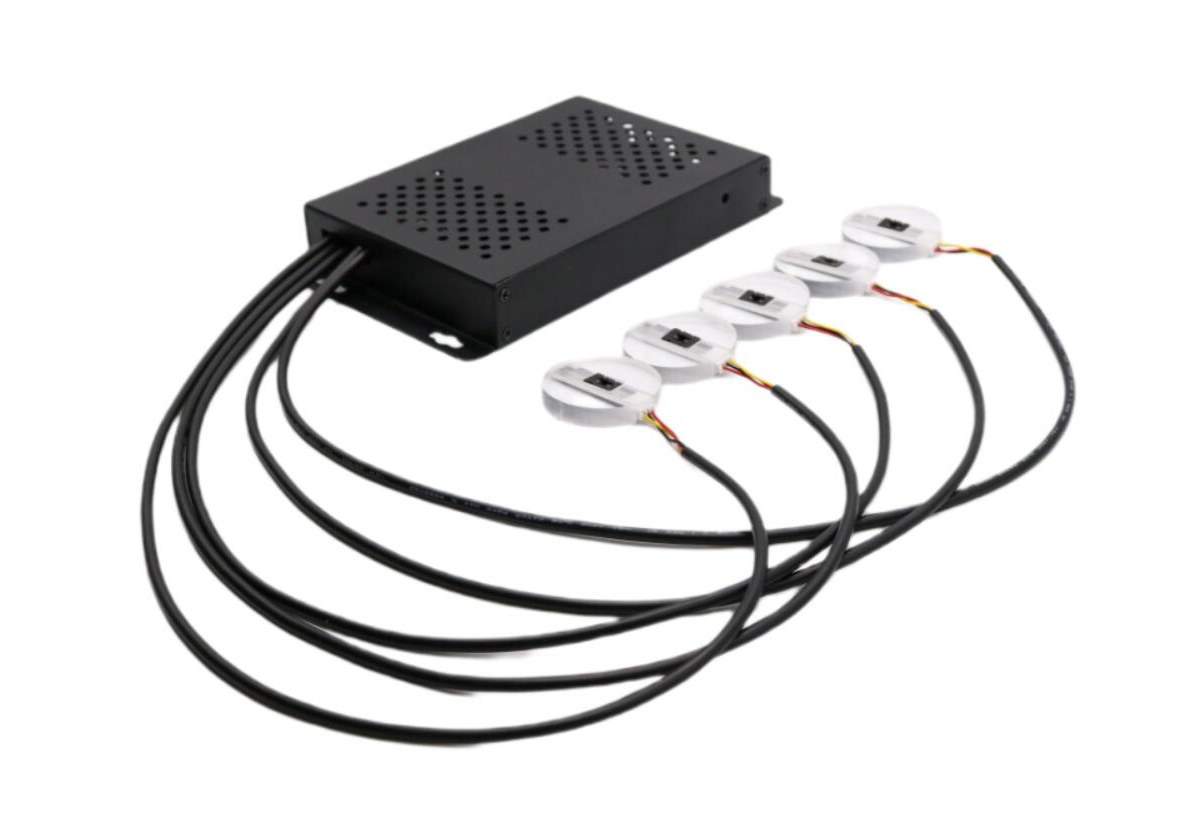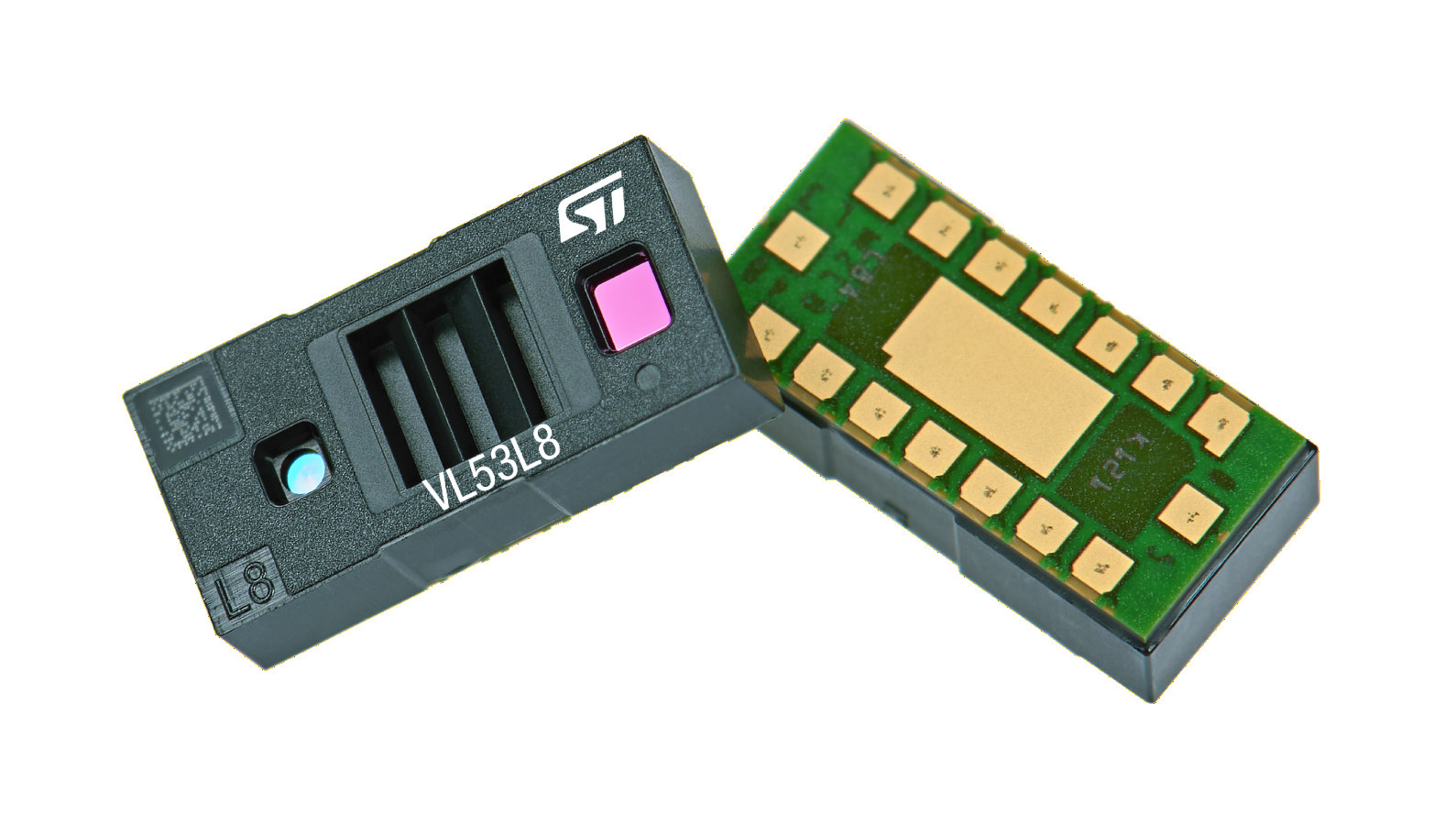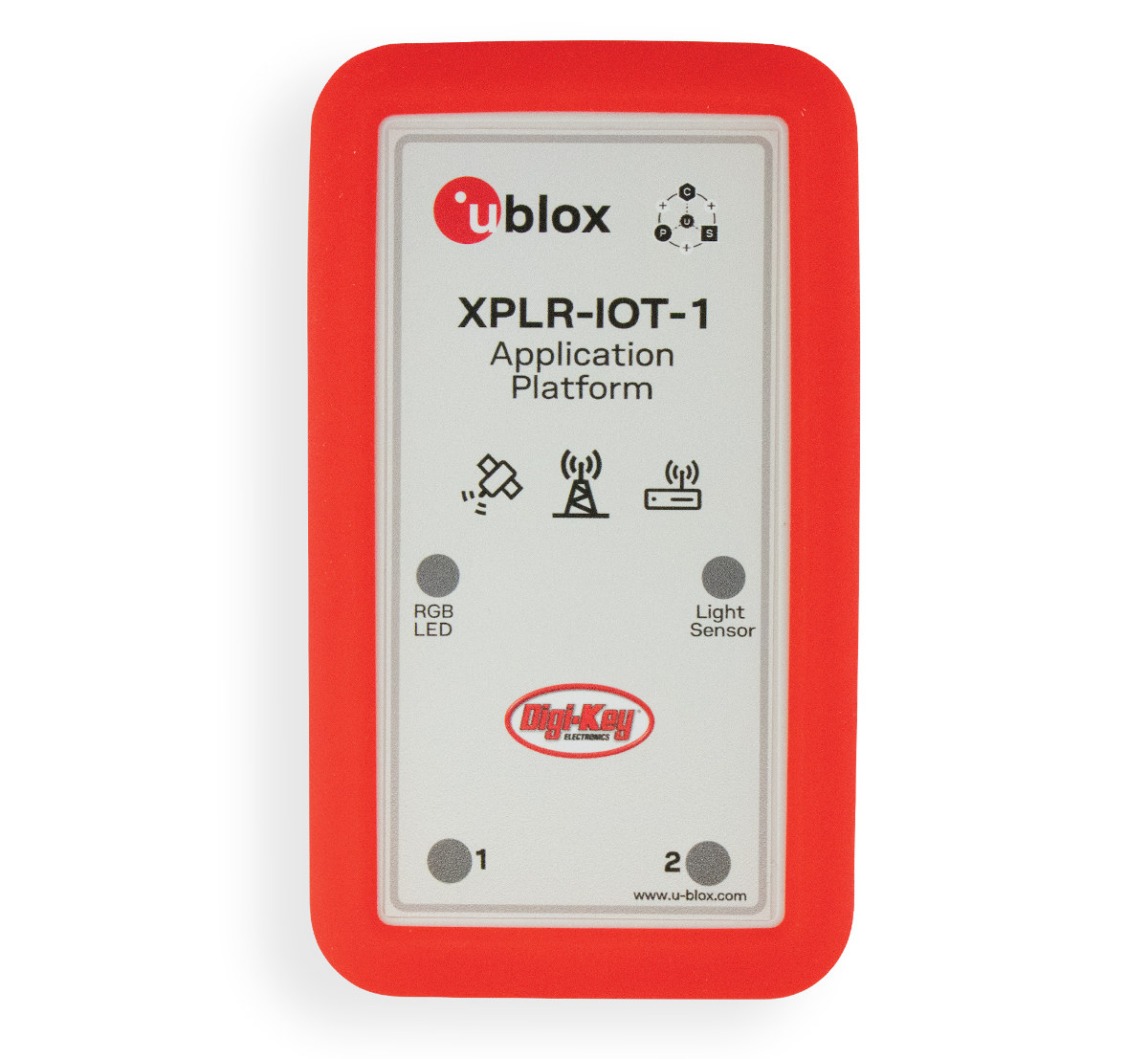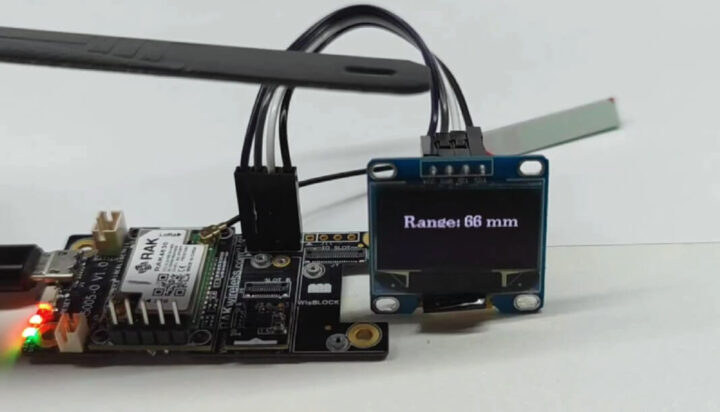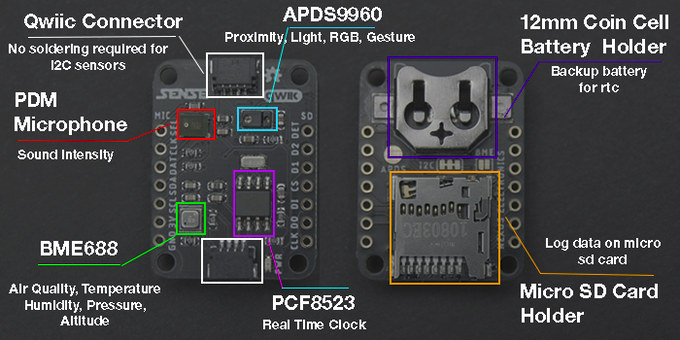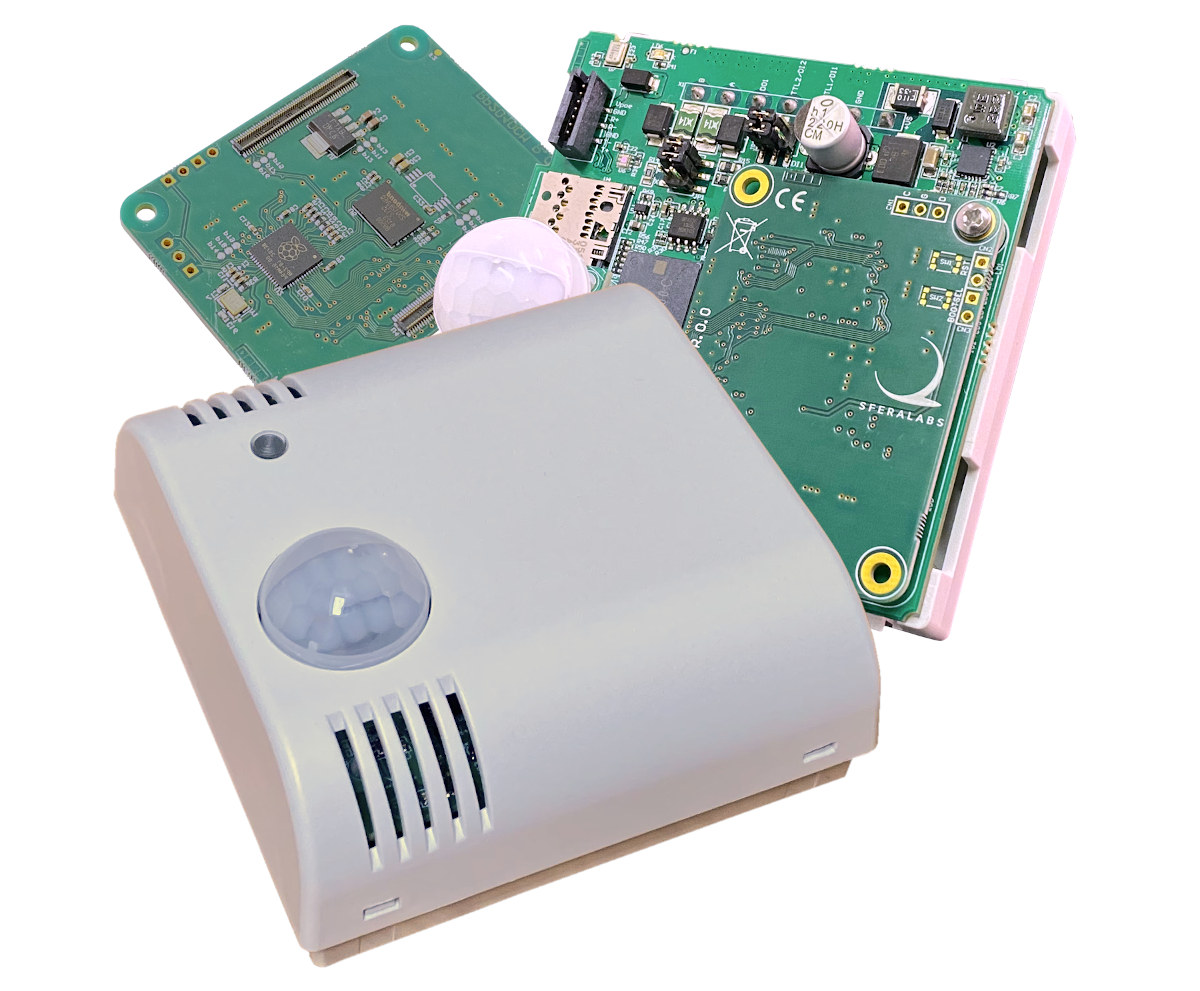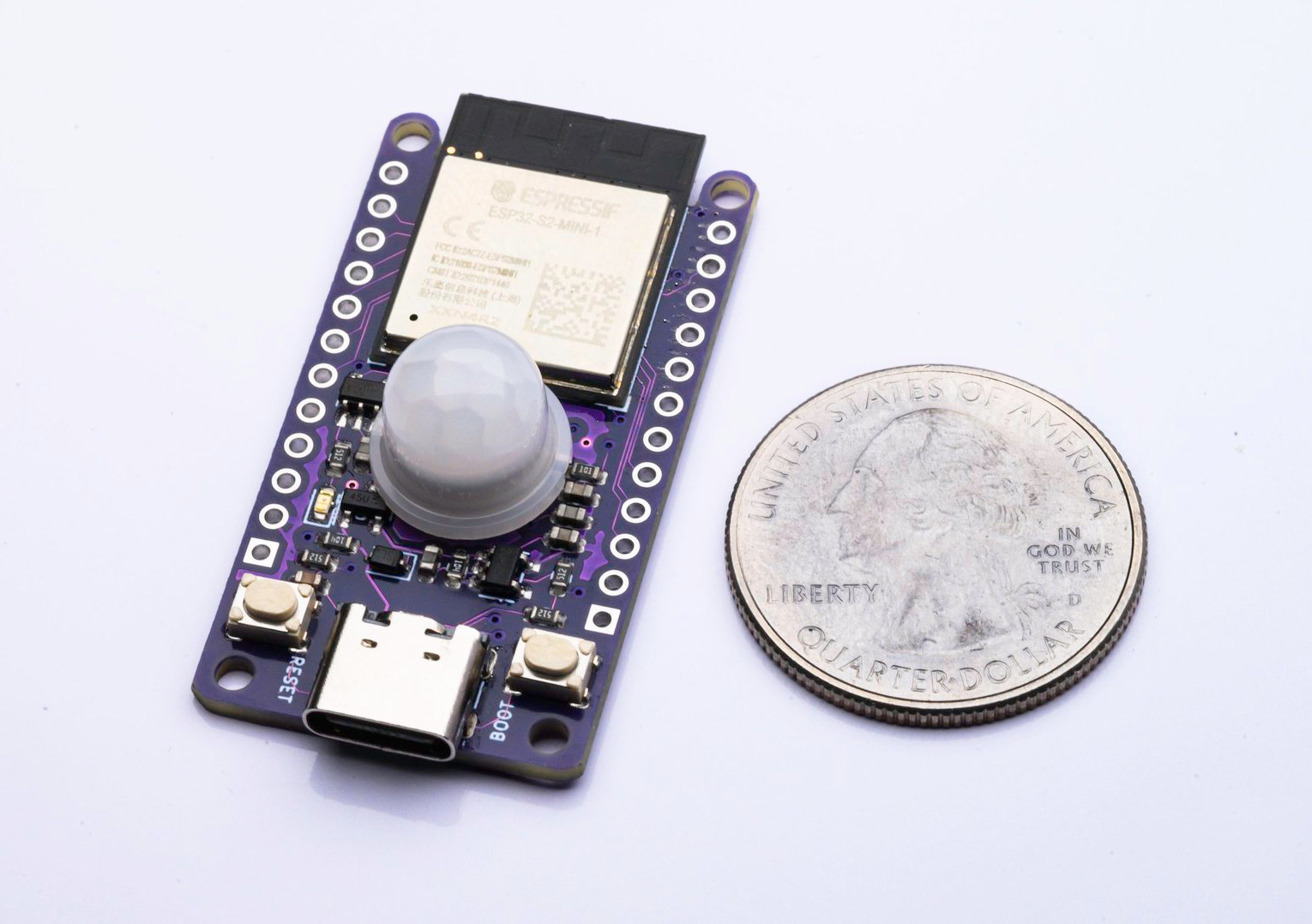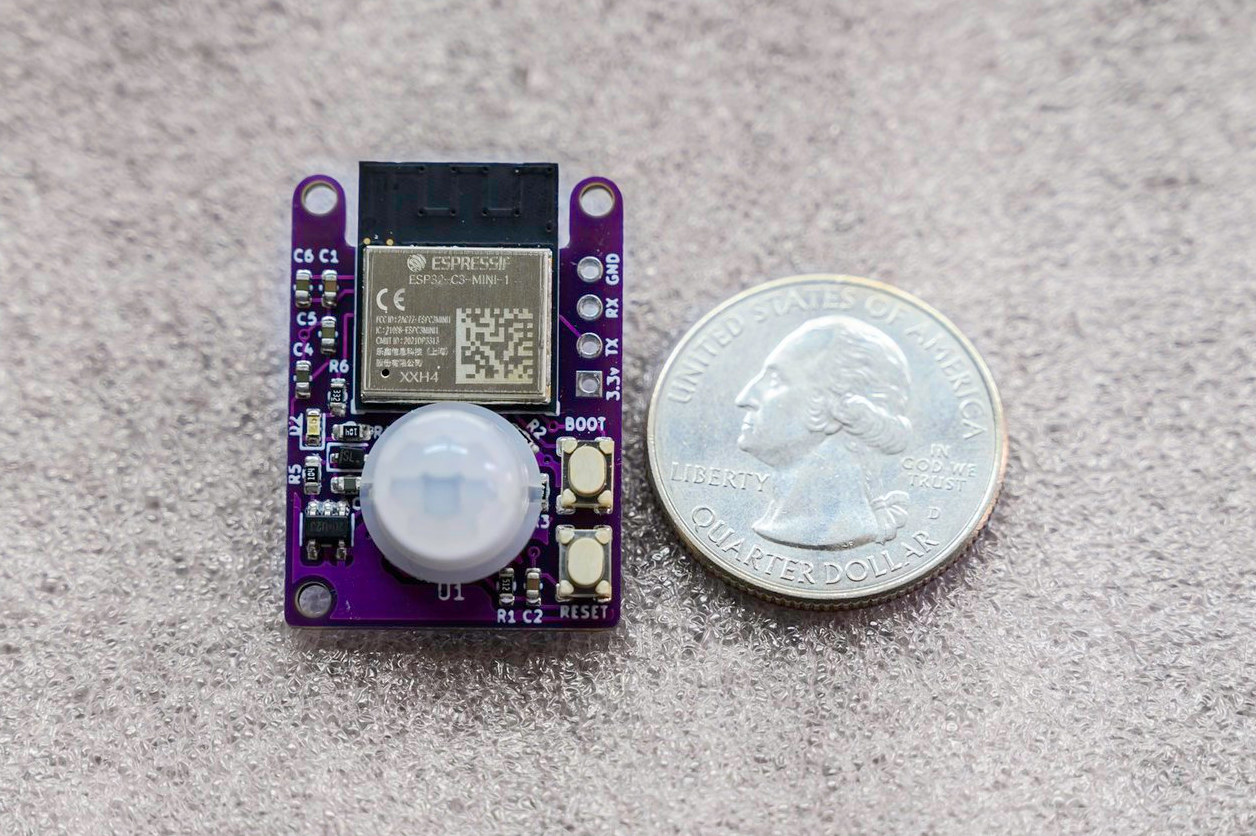Light sensors are used to turn on/off lights, adjust the brightness of displays, and more. But I’ve come across a use case I never thought of: object presence detection. In the digital signage work, such features if called “lift and learn”, and light sensors are used to detect when an object is present and play a video or display information about the product. That concept came to my attention when I saw a photo of Mekotronics R29 digital signage player with several cables coming out of the device and attached to what looked like white hockey pucks and turned out to be light sensors. Apart from the light sensors, Mekotronics R29 specifications are pretty standard: SoC – Rockchip RK3399 hexa-core processor with 2x Cortex-A72 cores, 4x Cortex-A53 cores, Arm Mali-T860MP4 GPU, 4K VP9, H.264, H.265, and 1080p60 VC-1, MPEG-1/2/4, VP6/8 video decoder System Memory – 4GB DDR Storage – 64GB […]
STMicro VL53L8 multi-zone direct Time-of-Flight (dToF) sensor improves range and efficiency
STMicro VL53L8 multi-zone direct Time-of-Flight (dToF) sensor doubles the ranging performance of VL53L5 sensor – up to 4 meters – or reduces the power consumption by half when operating in common conditions. STMicro ToF sensors are some of the most popular devices to accurately measure distance in real-time, and the earlier VL53L0X and VL53L1X sensors integrated a single photon avalanche diode. STMicro VL53L5 changed that with multi-zone support (up to 64 zones), and VL53L8 FlightSense sensor builds on the solution with improvements in terms of range and efficiency. STMicro VL53L8 ToF sensor specifications: Low-power 32-bit microcontroller running the firmware 940 nm invisible Vertical Cavity Surface Emitting Laser (VCSEL) and integrated analog driver 61° diagonal square system field of view (FoV) using diffractive optical elements (DOE) on both transmitter and receiver Receiving array of single-photon avalanche diodes (SPADs) Parallel multi-zone output – Either 4×4 (16 zones @ 60 fps) or 8×8 […]
u-blox XPLR-IOT-1 explorer kit embeds cellular IoT, Wi-Fi, BLE, GNSS, and sensors for IoT evaluation
u-blox XPLR-IOT-1 explorer kit is an all-in-one IoT evaluation platform with cellular IoT, Wi-Fi, Bluetooth Low Energy, and GNSS, plus some sensors to evaluate various IoT products and enable proofs of concepts such as logistics container trackers, industrial automation, sensor-to-cloud applications, and fleet management solutions. The device’s main module is the u-blox NORA-B106 with a dual-core Arm Cortex M33 microcontroller and Bluetooth LE 5.2 radio that host the application software and control the other modules, namely the SARA-R510S module for LTE-M and NB-IoT cellular connectivity, NINA-W156 2.4 GHz Wi-Fi module, and the MAX-M10S GNNS module. The XPLR-IOT-1 platform is also equipped with an accelerometer, a gyroscope, a magnetometer, and temperature, humidity, pressure, and ambient light sensors. u-blox XPLR-IOT-1 specifications: Main MCU – Nordic Semi nRF5340 dual-core Arm Cortex M33 @ 128/64 MHz with 512 + 64 kB RAM memory and 1024 + 256 kB flash (found in NORA-B106 module) Wireless […]
How to use a ToF laser ranging sensor with Arduino and Wisblock
Laser ranging has many applications in production and life, such as ranging, positioning, obstacle avoidance, and so on. Time-of-Flight (ToF) ranging, as a type of laser ranging technology, is often used for real-time object detection in robots, autonomous vehicles, and traffic management because of its accuracy, fast response, and low power consumption. The face detection function of mobile phones also uses this technology. This article will introduce the WisBlock RAK12014 ToF laser ranging sensor module, and use the WisBlock development board to demonstrate how the module works. What is a ToF laser ranging sensor module? A ToF laser ranging sensor module uses laser pulses to measure the distance between itself and a target object. The WisBlock RAK12014 ToF laser ranging sensor module is based on STMicro VL53L0X, the smallest ToF ranging sensor in the world. The WisBlock RAK12014 provides accurate distance measurement and can measure distances up to 2 meters. […]
$30 compact multi-sensor board works with any microcontroller with I2C (Crowdfunding)
SENSE is a compact multi-sensor board supporting measurement of air quality, sound, light intensity, temperature, proximity, etc… and designed by Zack Seifert, a seventeen-year-old electronics enthusiast and president of his school’s robotics team. SENSE can work with any microcontroller or processor with I2C (hardware or implemented with bit-banging), including Arduino and Raspberry Pi boards. and an extra Qwiic connector allows for additional sensors. SENSE board specifications: Storage – MicroSD card holder Sensors
Exo Sense RP – A Raspberry Pi RP2040-based multi sensor module
Sfera Labs Exo Sense RP is a multi-sensor module with a Raspberry Pi RP2040 microcontroller and various sensors to report temperature, humidity, air quality (VOC), light intensity, audio, and motion. The module can work as a standalone unit but can also communicate with a host through RS485 and USB interfaces, and supports expansion via surge-protected digital inputs and outputs. The Exo Sense RP is designed for indoor residential and commercial applications such as environmental monitoring and data logging, people and assets tracking, room management, access control, and more. Exo Sense RP specifications: MCU – Raspberry Pi RP2040 dual-core Arm Cortex M0+ @ 133 MHz with 264KB SRAM Storage – 16MB flash memory Communication ports RS485 half-duplex up to 115200 bps, with surge protection Micro USB 1.1 Type-B connector Sensors Sensirion SHT40 temperature and humidity sensor Sensirion SGP40 air quality (VOC) sensor Texas Instruments OPT3001 light intensity sensor TDK ICS-43432 digital […]
Bee Motion ESP32-S2 PIR motion sensor offers GPIOs, over a year of battery life
Smart Bee Designs’ Bee Motion is an ESP32-S2 board with a PIR motion sensor, some GPIOs for expansion, and promising over a year of battery life under the right circumstances. If the name “Bee Motion” rings a bell, it’s because we covered the Bee Motion Mini board last month with an ESP32-C3 processor and a PIR sensor, but no USB port for programming and no expansion ability. It was just designed to be used as a battery-powered wireless PIR motion sensor. The Bee Motion expands the use cases of the solution, although it only features WiFi connectivity, and loses Bluetooth LE. Bee Motion specifications: Wireless module – Espressif ESP32-S2-MINI-1 module with Espressif ESP32-S2FH4 single-core 32-bit LX7 microcontroller @ up to 240 MHz, RISC-V ultra-low-power co-processor, 320 kB SRAM, 128kB ROM, 2.4 GHz WiFi 4 connectivity, 4MB flash, PCB antenna PIR sensor – Passive infrared motion sensor with dome lens, 5-meter […]
Bee Motion Mini board combines ESP32-C3 with PIR sensor
Designed by Smart Bee Designs, the tiny Bee Motion Mini combines an ESP32-C3 wireless RISC-V SoC with a PIR sensor for motion detection reporting over WiFi, Bluetooth LE, or Bluetooh Mesh. The board was designed to be as small as possible to fit into a 3D printed case with a LiPo battery and placed/hidden anywhere you want. Motion detection range is up to 5 meters, and the Bee Motion Mini can connect to services like MQTT, ITTT, or NodeRed to trigger other devices upon motion. Bee Motion Mini specifications: Wireless module – Espressif Systems ESP32-C3-MINI-1 module with ESP32-C3 WiFi and Bluetooth LE 5.0 RISC-V SoC up to 160 MHz, 4 MB embedded flash PIR sensor – Passive infrared motion sensor with dome lens, 5-meter range I/O- UART Tx/Rx for flashing firmware, 3.3V, and GND Misc – BOOT and RESET buttons Power Supply JST PH.20 connector for LiPo battery 3.3V via […]


